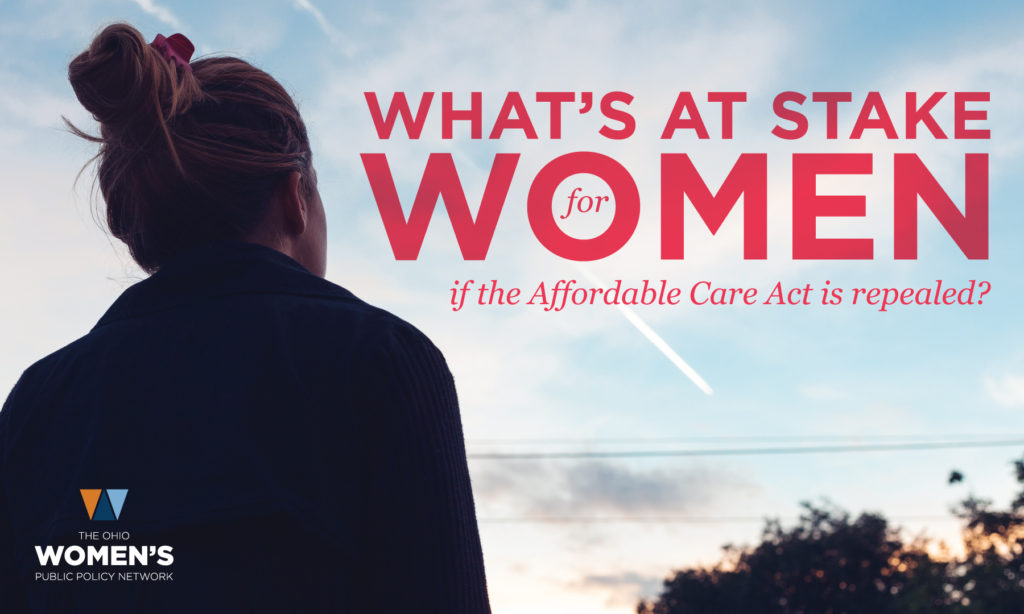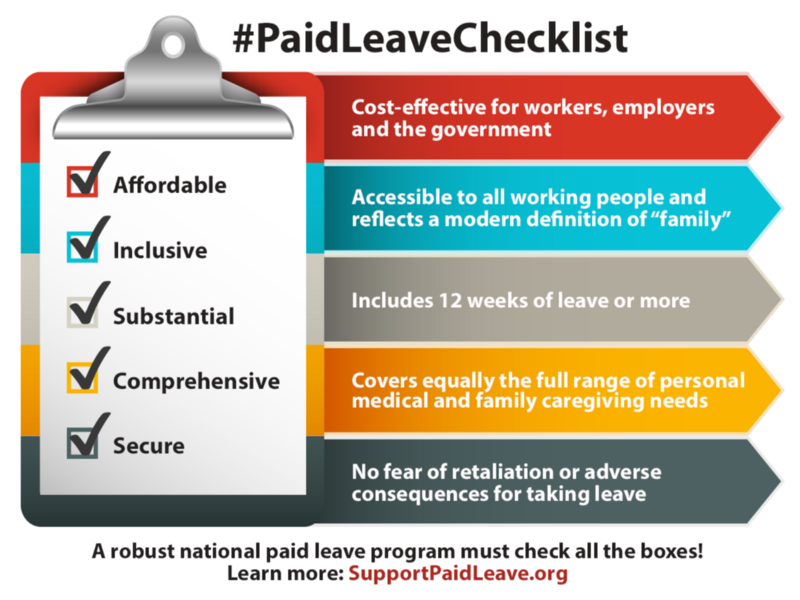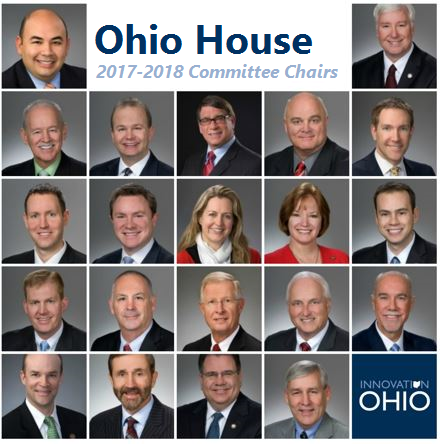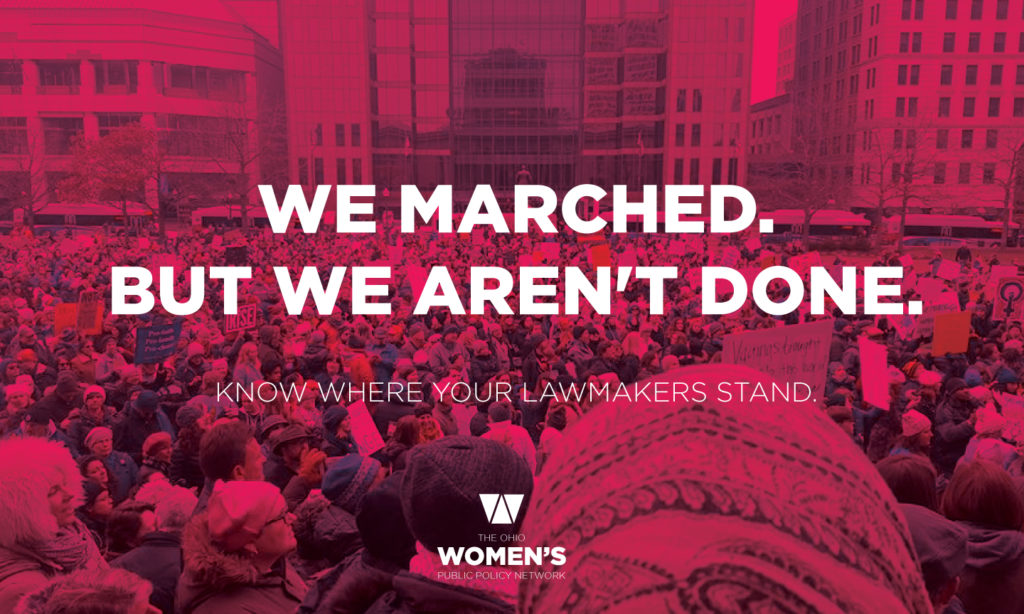 Yesterday, the Ohio House voted overwhelmingly to pass legislation to address a loophole in current Ohio law by allowing victims of dating violence to obtain civil protection orders against their attackers. Today, such orders are only available to victims who are spouses, living as spouses or share a child in common. This leaves thousands of Ohioans without protection because, as noted by Phyllis Riehm of ACTION Ohio in testimony, 48.6% of women killed by intimate partners were killed by dating partners.
The bipartisan legislation was sponsored by Emilia Sykes (D-Akron) and Nathan Manning (R-N. Ridgeville). In an emotional speech on the house floor, Sykes recalled the story of a young Akron woman who recently lost her life to a dating partner and appealed to her colleagues:
Yesterday, the Ohio House voted overwhelmingly to pass legislation to address a loophole in current Ohio law by allowing victims of dating violence to obtain civil protection orders against their attackers. Today, such orders are only available to victims who are spouses, living as spouses or share a child in common. This leaves thousands of Ohioans without protection because, as noted by Phyllis Riehm of ACTION Ohio in testimony, 48.6% of women killed by intimate partners were killed by dating partners.
The bipartisan legislation was sponsored by Emilia Sykes (D-Akron) and Nathan Manning (R-N. Ridgeville). In an emotional speech on the house floor, Sykes recalled the story of a young Akron woman who recently lost her life to a dating partner and appealed to her colleagues:
I hope that you will stand with me in supporting House Bill 1, to support victims of dating violence across the state and ensure that no one has to bury a child, no one has to bury their mother, no one has to bury a friend because the state has done absolutely everything that we could to protect victims of dating violence.Despite having 65 sponsors or cosponsors, the legislation did meet with some opposition. Two members — Republicans Tom Brinkman and Nino Vitale — voted against the measure. The bill now goes to the Ohio Senate.

 As Republican members of Congress continue to push forward with their plans to repeal the Affordable Care Act (ACA) – also known as Obamacare – there has been push back from lawmakers on both sides of the aisle, advocacy groups, medical experts, and concerned citizens. The threat of a repeal is fueling many to get informed about the potential impacts of the repeal, add their voice to the conversation, and stay engaged about ways to advocate for the protection of the ACA.
The repeal of the ACA would jeopardize healthcare for nearly 1 million Ohioans, and women would be hit particularly hard by the loss of the healthcare law. Before the ACA, women regularly faced discrimination in the health care industry in coverage, in pricing, and in access to care.
As Republican members of Congress continue to push forward with their plans to repeal the Affordable Care Act (ACA) – also known as Obamacare – there has been push back from lawmakers on both sides of the aisle, advocacy groups, medical experts, and concerned citizens. The threat of a repeal is fueling many to get informed about the potential impacts of the repeal, add their voice to the conversation, and stay engaged about ways to advocate for the protection of the ACA.
The repeal of the ACA would jeopardize healthcare for nearly 1 million Ohioans, and women would be hit particularly hard by the loss of the healthcare law. Before the ACA, women regularly faced discrimination in the health care industry in coverage, in pricing, and in access to care. 
 Add your voice: Join paid leave advocates today, February 7th at 2:00 PM for a twitter storm to celebrate the 24th anniversary of the FMLA, and call for a national paid leave policy. Use
Add your voice: Join paid leave advocates today, February 7th at 2:00 PM for a twitter storm to celebrate the 24th anniversary of the FMLA, and call for a national paid leave policy. Use 

 During President Barack Obama’s Farewell Address on Tuesday evening, he highlighted one of the most important pillars of our American democracy: civic engagement. He spoke of the need for citizens to take part in the democratic process by engaging in real, substantive conversations about issues with those that may disagree with us, participating in organizing efforts to fix a problem in our community, or even running for office ourselves.
Reminiscing on his time organizing with faith groups in Chicago when he was in his 20s, President Obama shared that, “this is where I learned that change only happens when ordinary people get involved, get engaged, and come together to demand it.” These words especially resonated with me as a new presidential administration – one which threatens the equal rights of women, minorities, immigrants, the LGBTQ community, and other marginalized groups – will enter the White House in the coming days.
Those concerned with how to continue to advance progress and change for women under this new administration can do just as a young Barack Obama and organizers in Chicago took part in all those years ago: get involved, get engaged, come together and march. Around the Inauguration, tens of thousands of advocates, allies, organizers, and concerned citizens will mobilize for a Women’s March on Washington or join Sister Marches in cities across the nation. Marchers will demonstrate with a collective voice that they plan to work together to move change for women in the right direction and demand that women’s rights are not left behind under the new administration.
You can get involved in one of the marches too, and become one of those engaged citizens President Obama underscored as a necessity to the future of our democracy. Here’s the information you need to participate in a Women’s March:
During President Barack Obama’s Farewell Address on Tuesday evening, he highlighted one of the most important pillars of our American democracy: civic engagement. He spoke of the need for citizens to take part in the democratic process by engaging in real, substantive conversations about issues with those that may disagree with us, participating in organizing efforts to fix a problem in our community, or even running for office ourselves.
Reminiscing on his time organizing with faith groups in Chicago when he was in his 20s, President Obama shared that, “this is where I learned that change only happens when ordinary people get involved, get engaged, and come together to demand it.” These words especially resonated with me as a new presidential administration – one which threatens the equal rights of women, minorities, immigrants, the LGBTQ community, and other marginalized groups – will enter the White House in the coming days.
Those concerned with how to continue to advance progress and change for women under this new administration can do just as a young Barack Obama and organizers in Chicago took part in all those years ago: get involved, get engaged, come together and march. Around the Inauguration, tens of thousands of advocates, allies, organizers, and concerned citizens will mobilize for a Women’s March on Washington or join Sister Marches in cities across the nation. Marchers will demonstrate with a collective voice that they plan to work together to move change for women in the right direction and demand that women’s rights are not left behind under the new administration.
You can get involved in one of the marches too, and become one of those engaged citizens President Obama underscored as a necessity to the future of our democracy. Here’s the information you need to participate in a Women’s March:

